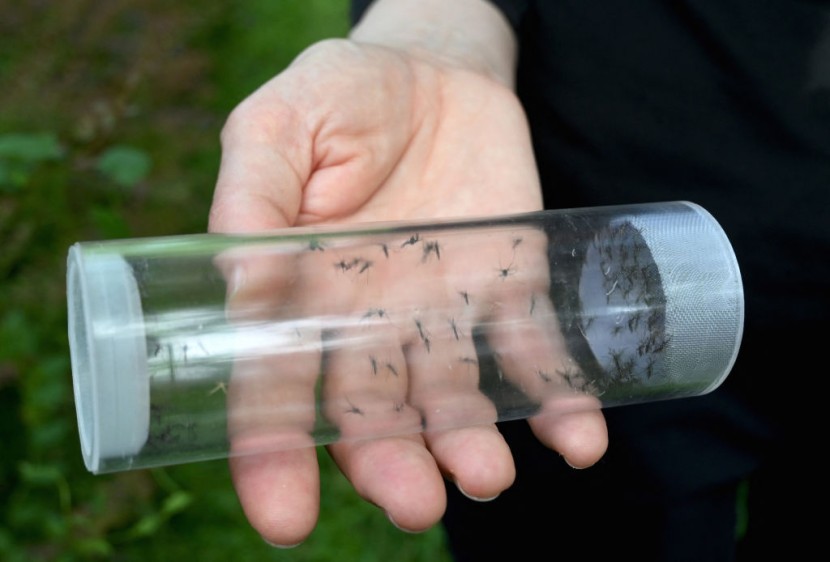Hector Enriquez, a 52-year-old mason, volunteered to help spread the word about a plan to eradicate dengue in the Honduran capital by dispersing millions of unique mosquitoes.
Scientists engineered the mosquitoes Enriquez released in his dengue-ridden neighborhood of El Manchen to carry Wolbachia bacteria, which prevents the spread of the illness, as reported by The Associated Press. These mosquitoes spread the bacterium to their progeny during reproduction, preventing further epidemics.
It was developed over the past ten years by the nonprofit World Mosquito Program, and it is currently being tested in more than a dozen nations. The World Health Organization is closely monitoring the mosquito releases in Honduras and elsewhere and is prepared to push the concept globally because more than half of the world's population is at risk of catching dengue.
The Wolbachia Bacterium
Doctors Without Borders is working with the mosquito program to release about 9 million mosquitoes carrying the Wolbachia bacterium over the course of the next six months in Honduras, where it is estimated that 10,000 people get sick from dengue each year.
In recent years, researchers have made significant progress in lowering the threat posed by infectious diseases, especially those spread by mosquitoes like malaria. Dengue, however, is an anomaly because it has a rising infection rate.
According to models, dengue affects 400 million people annually in 130 different nations. Dengue has a modest mortality rate—40,000 people are thought to pass away from it annually—but epidemics can overwhelm medical services and make many people miss work or school.

Traditional approaches to preventing mosquito-borne diseases haven't been all that successful in preventing dengue.
Insecticides, even in the best-case scenario, only have temporary effects on the Aedes aegypti mosquitoes that mostly carry dengue. Additionally, the dengue virus is more difficult to manage with vaccines because of its four distinct forms.
Bed nets aren't much of a defense against Aedes aegypti mosquitoes since they are more active during the day and so bite most frequently. Climate change and urbanization are anticipated to make the fight against dengue even more challenging because these insects prefer warm, humid climates and congested metropolitan areas.
Read also: Peru Dengue Outbreak: Health Crisis Reaches 130K Cases, 200 Fatalities
The Wolbachia Approach
Velayudhan and other WHO specialists want to release a recommendation this month to encourage additional Wolbachia approach testing in other parts of the world.
The Wolbachia approach has been under development for many years. Only the Aedes aegypti mosquito does not normally harbor the bacterium, which is present in roughly 60% of insect species.
Wolbachia was originally intended to be used in a different way, to reduce mosquito numbers, about 40 years ago. Scientists would release infected male mosquitoes into the wild to breed with uninfected females, whose eggs would not hatch because male mosquitoes carrying the bacteria only create offspring with females that also have it.
However, O'Neill's team discovered something unexpected along the way: mosquitoes harboring Wolbachia did not transmit dengue or other associated diseases like yellow fever, Zika, or chikungunya
Infected females also gradually "replace" a local mosquito population with one that harbors the virus-blocking bacteria because they transfer Wolbachia onto their young.
Oliver Brady, an epidemiologist at the London School of Hygiene and Tropical Medicine, noted that the replacement plan requires a significant change in how people view mosquito management.
The World Mosquito Program has conducted studies affecting 11 million people across 14 countries, including Brazil, Mexico, Colombia, Fiji, and Vietnam, since O'Neill's lab tested the replacement technique for the first time in Australia in 2011.
The outcomes are encouraging. In 2019, when Wolbachia-infected mosquitoes were released, a large-scale field trial in Indonesia revealed a 76% decrease in reported dengue infections.
O'Neill noted there are still uncertainties over the replacement strategy's worldwide efficacy and cost-effectiveness. The $900,000, or around $10 per person that Doctors Without Borders expects to safeguard, the three-year Tegucigalpa study will cost.
Researchers are still unsure of how Wolbachia prevents viral transmission in reality. Also unknown is whether the bacteria will be equally effective against all virus strains or if some strains may evolve a resistance over time, according to Bobby Reiner, a University of Washington mosquito researcher.
Related article: CDC Issues Alert After 5 Local Cases of Malaria Recorded, First in 20 Years
© 2026 HNGN, All rights reserved. Do not reproduce without permission.








